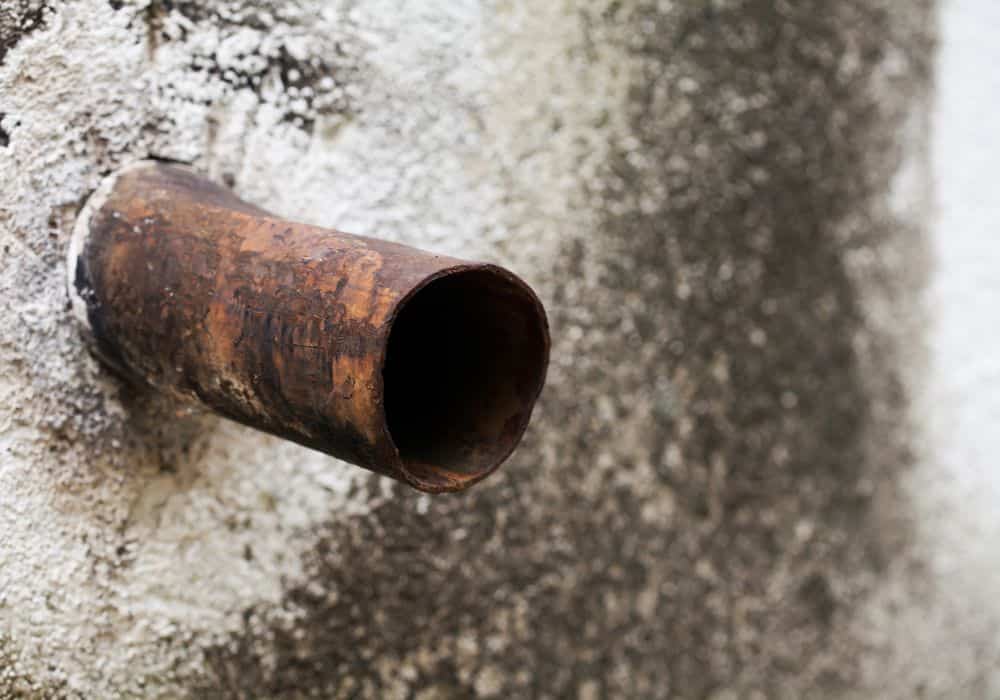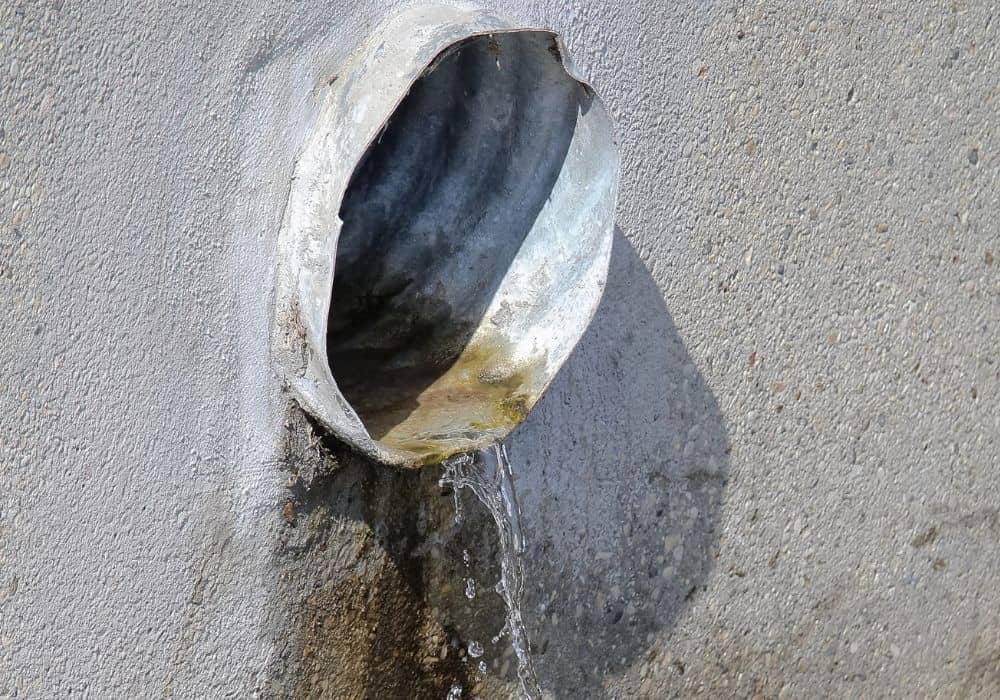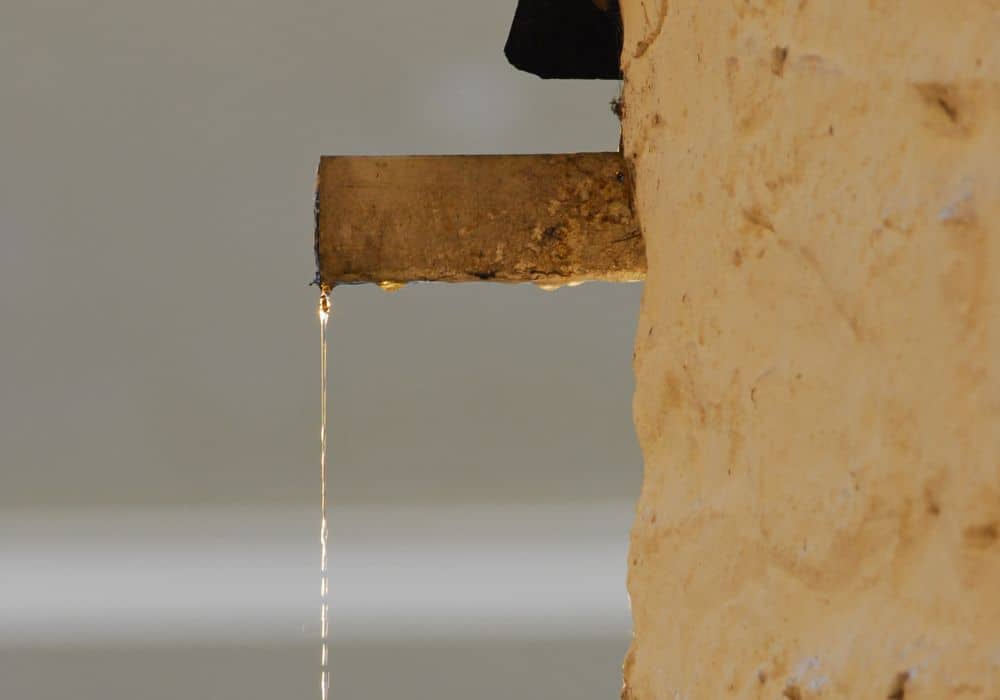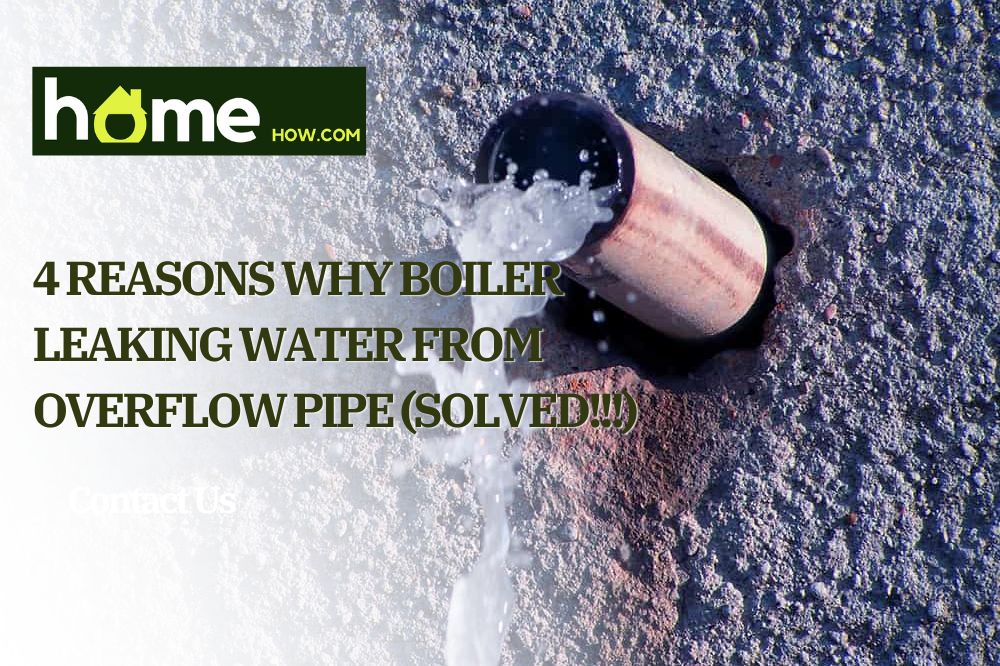Our boiler is one of the most important pieces of equipment in our home. It keeps us warm and regulates our water levels effortlessly. But behind every great appliance is an even greater safety net.
Overflow pipes can be found across many rooms and water appliances, serving the same important purpose – removing excess water that stays in our plumbing system and exits safely and securely.
An overflow pipe leak can signal something majorly wrong with your plumbing. And if it malfunctions at your boiler, this can cause havoc to other systems in your home.
In this article, we’ll explain why your boiler’s overflow pipe is leaking. We’ll also suggest some easy ways to fix the problem without needing a professional plumber and how to diagnose other problematic overflow pipe issues around your home.
What is an overflow pipe? And shouldn’t it leak anyway?
Firstly, let’s explain the importance of a well-functioning overflow pipe. They are essential to your plumbing, preventing flooding in your home by safely carrying excess amounts from your toilets, tanks, and cisterns outside your home.
In truth, a leaking overflow pipe shows that it is working as intended – your system has too much water, and the pipe is doing its job. But with any leaks, it can be a cause of concern to the homeowner that there’s a pipe, cistern, or some appliance malfunctioning.
First, it’s essential to identify the cause of the leak at your boiler, as that will lead you to find the most appropriate fix for your overflowing pipe problems.
The most common causes of a leaking overflow pipe

Below are some of the most common causes of overflow pipe leaking. Because of its proximity to both the boiler and active plumbing pipes, we recommend preparing the space for potential surges in water and wearing safety clothing if near scalding pipes and heat tanks.
The most common causes include the following:
1. Damaged fittings
The first and most common cause of a leaking overflow pipe is the simplest to rectify. Because your boiler will be in near-constant contact with water, you need to check its fittings, joints, and any connections for wear-and-tear, misplacement, or, worse, corrosion.
Limescale easily builds up between the washer and your boiler, creating spaces where the overflow pipe can leak. This is primarily a problem if you have used low-quality washers or are using older fittings that cannot withstand modern water’s high mineral content.
Simply replacing washers may be enough to rectify small leaks and ensure your system is water-tight again.
2. Combi boiler? Check your float valve
If you have a combi boiler, you will also have an expansion tank that helps keep boiler pressure stable as the water heats up. It is an integral part of regulating your heating system.
The float valve aims to shut off the water when it reaches too high a level. Often, overflow pipes leak because a faulty float valve allows too much water to collect in your system.
As the above video from PlumberParts shows, it is incredibly straightforward to fix the valve. If it feels “stuck” in place, it will likely have degraded and need replacing. When you install the new valve, turn on the water and watch the tank fill. Once the water level reaches the float, the tap should shut off immediately.
Expert tips: When replacing a ball valve, use this time to replace all nearby washers and fixtures connected as well. If the vale failed, the fittings most likely have/or will soon, too.
3. Pressure relief valve
The pressure relief valve is an important safety mechanism in your plumbing system that releases water when too much pressure is collecting in pipes.
If you have too much water pressure in pipes, the overflow will not work as intended, and eventually, the valve will move off its position, and water will escape through minute cracks and gaps. Reducing water pressure, refitting your vale, and ensuring it creates a proper seal can eliminate the problem simply and effectively.
But sometimes, if this valve leaks, it could be a sign of corrosion, which needs immediate replacement. Like washers and floats, the vale can suffer from limescale and degradation from hard water minerals.
As DIYeascrafts explains below, replacing the valve can be straightforward.
- Turn off the burner
- Turn off the water supply
- Drain your system completely
- Screw off the pressure valve. Some people use this time to remove the expansion tank and check for damage there.
- With a replacement valve, gently tighten it onto your system. Overtightening can crack your pipe and valve, so be careful.
- Turn the water back on. There may still be pockets of water in your system that will drain out slowly.
4. Improper installation
While an old boiler and overflow pipe may suffer the test of time, if you have a relatively new boiler and it leaks, this can point to improper installation.
Plumbers often have a work guarantee on their labor and the equipment and parts they’ve used. If they are found at fault, repairing your boiler, and overflow pipe should not cost you anything.
How to keep your overflow pipe in good condition

Prevention is the best protection against an overflow pipe leaking and your boiler breaking down.
There are some simple ways to help your system work at its best, including:
- Frequently bleeding radiators relieve pressure and remove cold spots within your heating system.
- Noisey boiler: An overly noisy boiler is a cry for help, and it is failing and not necessarily your overflow pipe. Inspect connections and the thermostat and ensure it’s running smoothly.
- Fix plumbing problems immediately: If a pipe in your network has burst or broken from corrosion, this is a tell-tale sign you should inspect nearby pipes and connected systems.
- Sooty marks on boiler: This is a tell-tale sign that the combustion element of your boiler is malfunctioning and requires immediate attention.
Should you replace a leaky boiler and pipe?
While many people might rush to phone their local plumber, fixing an overflow pipe leaking is relatively straightforward. You don’t need much if any, plumbing skills to solve many of the above problems.
If your boiler and overflow pipe have continued to act up over the years, it may be time to change your entire tank in favor of a new boiler and system.
Old boilers and pipes are energy inefficient, especially with modern water consumption demands. On the plus size, upgrading your system may prevent future leaking problems and could save you money in the long run!
Which overflow pipe is causing problems?
You can find overflow pipes in many areas of your home, including kitchen sinks, toilet cisterns, drains, and our boiler systems.
Because our plumbing is so interconnected, a problem with one overflow pipe can cause problems for other areas in your home.
And since overflow pipes generally show signs of water dripping, you might mistake one pipe as the culprit, not another. Pay close attention to the following symptoms of overflow pipes to see if the culprit is not necessarily your boiler but causing it to malfunction.
- Bathroom pipes: If leaks appear on the ground floor, this often suggests your bathroom overflow pipe is the problem.
- Cold & hot water tank: If excess water comes from taps, the problem is pressure – cold water mains push hot water back up pipes, causing an overflowing issue.
- Vent: If mold or discoloration appears on outside walls, and there’s a foul smell from plumbing, pipes connected to your vent are clogged.
- The boiler: If the leak only appears when radiators are turned on, the problem is in your combi boilers.

Conclusion
Overflow pipes are a safety net that helps alleviate common issues in our plumbing systems. But they are not invincible – and if your overflow pipe overflows to such an extent that it springs leaks, this is a tell-tale sign there’s something majorly wrong.
Quite often, replacing washers, fittings, and equipment like float and pressure valves may be enough to stop any leaks. But it’s also worth considering that repairs might not be enough, and you might need a total replacement of your boiler, expansion tank, and pipe to remedy your leaks.
Many YouTube tutorials we’ve included show that you don’t need much plumbing experience to replace your system. Please comment below if you still have questions about how to quickly and easily fix your overflowing pipe.
If in doubt, always remember:
- Please turn off the water supply whenever a leak presents itself.
- Examine washers, fittings, and valves carefully for signs of blockage, misplacement, or corrosion.
- If removing the boiler to replace parts, use this opportunity to install replacements. Don’t wait for them to fail.
